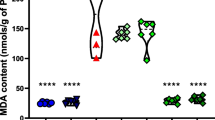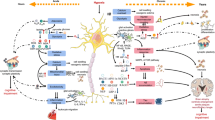Abstract
Stroke is the second leading cause of death globally. Cognitive dysfunction is a common complication of stroke, which seriously affects the patient’s quality of life. Previous studies have shown that the expression of hyperpolarization-activated cyclic nucleotide-gated cation (HCN) channel is closely related to ischemia-reperfusion (IR) injury and subsequent cognitive impairment. We also found that ZD7288, a specific inhibitor of the HCN channel, attenuated IR injury during short-term reperfusion. Since apoptosis can induce cell necrosis and aggravate cognitive impairment after IR, the purpose of this study is to define whether ZD7288 could improve cognitive impairment after prolonged cerebral reperfusion in rats by regulating apoptotic pathways. Our data indicated that ZD7288 can ameliorate spatial cognitive behavior and synaptic plasticity, protect the morphology of hippocampal neurons, and alleviate hippocampal apoptotic cells in IR rats. This effect may be related to down-regulating the expressions of pro-apoptotic proteins such as AIF, p53, Bax, and Caspase-3, and increasing the ratio of Bcl-2/Bax. Taken together, it suggested that inhibition of the HCN channel improves cognitive impairment after IR correlated with its regulation of apoptotic pathways.






Similar content being viewed by others
Data Availability
All data generated or analyzed during this study are included in this article. The datasets used and/or analyzed during the current study are available from the corresponding author on reasonable request.
Abbreviations
- IR:
-
Ischemia-reperfusion
- LTP:
-
Long-term potentiation
- HCN:
-
Hyperpolarization-activated cyclic nucleotide-gated cation
- Ih:
-
Hyperpolarization-activated mixed cationic
- NMDAR:
-
N-methyl-D-aspartic acid receptor
- MCAO:
-
Middle cerebral artery occlusion
- fEPSP:
-
Field excitatory postsynaptic potential
- HFS:
-
High-frequency stimulus
- HE:
-
Hematoxylin-eosin
- BSA:
-
Bovine serum albumin
- IOD:
-
Integrated optical density
References
Beaumont V, Zucker RS (2000) Enhancement of synaptic transmission by cyclic AMP modulation of presynaptic ih channels. Nat Neurosci 3(2):133–141. https://doi.org/10.1038/72072
Bennett SA, Tenniswood M, Chen JH, Davidson CM, Keyes MT, Fortin T, Pappas BA (1998) Chronic cerebral hypoperfusion elicits neuronal apoptosis and behavioral impairment. NeuroReport 9(1):161–166. https://doi.org/10.1097/00001756-199801050-00033
Bernabeu R, Sharp FR (2000) NMDA and AMPA/kainate glutamate receptors modulate dentate neurogenesis and CA3 synapsin-I in normal and ischemic hippocampus. J Cereb Blood Flow Metab 20(12):1669–1680. https://doi.org/10.1097/00004647-200012000-00006
Bliss TV, Collingridge GL (1993) A synaptic model of memory: long-term potentiation in the hippocampus. Nature 361(6407):31–39. https://doi.org/10.1038/361031a0
Chen J, Zhang J, Yang DD, Li ZC, Zhao B, Chen Y, He Z (2022) Clonidine ameliorates cerebral ischemia-reperfusion injury by up-regulating the GluN3 subunits of NMDA receptor. Metab Brain Dis 37(6):1829–1841. https://doi.org/10.1007/s11011-022-01028-y
Chopp M, Li Y (1996) Apoptosis in focal cerebral ischemia. Acta Neurochir Suppl 66:21–26. https://doi.org/10.1007/978-3-7091-9465-2_4
Combe CL, Gasparini S (2021) I(h) from synapses to networks: HCN channel functions and modulation in neurons. Prog Biophys Mol Biol 166:119–132. https://doi.org/10.1016/j.pbiomolbio.2021.06.002
Deutsch M, Stegmayr C, Balfanz S, Baumann A (2021) Loss of HCN2 in dorsal Hippocampus of Young Adult mice induces specific apoptosis of the CA1 pyramidal neuron layer. Int J Mol Sci 22(13):6699. https://doi.org/10.3390/ijms22136699
Ge YX, Lin YY, Bi QQ, Chen YJ (2020) Brivaracetam prevents the over-expression of synaptic vesicle protein 2A and rescues the deficits of hippocampal long-term potentiation in vivo in chronic temporal lobe Epilepsy rats. Curr Neurovasc Res 17(4):354–360. https://doi.org/10.2174/1567202617666200514114917
Golding NL, Staff NP, Spruston N (2002) Dendritic spikes as a mechanism for cooperative long-term potentiation. Nature 418(6895):326–331. https://doi.org/10.1038/nature00854
He C, Chen F, Li B, Hu Z (2014) Neurophysiology of HCN channels: from cellular functions to multiple regulations. Prog Neurobiol 112:1–23. https://doi.org/10.1016/j.pneurobio.2013.10.001
Hei Y, Chen R, Mao X, Wang J, Long Q, Liu W (2019) Neuregulin1 attenuates cognitive deficits and hippocampal CA1 neuronal apoptosis partly via ErbB4 receptor in a rat model of chronic cerebral hypoperfusion. Behav Brain Res 365:141–149. https://doi.org/10.1016/j.bbr.2019.02.046
Huang CC, Hsu KS (2003) Reexamination of the role of hyperpolarization-activated cation channels in short- and long-term plasticity at hippocampal mossy fiber synapses. Neuropharmacology 44(7):968–981. https://doi.org/10.1016/s0028-3908(03)00098-4
Ishimaru H, Takahashi A, Ikarashi Y, Maruyama Y (1997) Effects of MK-801 and pentobarbital on cholinergic terminal damage and delayed neuronal death in the ischemic gerbil hippocampus. Brain Res Bull 43(1):81–85. https://doi.org/10.1016/s0361-9230(96)00347-4
Li Y, Yu M, Zhao B, Wang Y, Zha Y, Li Z, Yu L, Yan L, Chen Z, Zhang W, Zeng X, He Z (2018) Clonidine preconditioning improved cerebral ischemia-induced learning and memory deficits in rats via ERK1/2-CREB/ NF-κB-NR2B pathway. Eur J Pharmacol 818:167–173. https://doi.org/10.1016/j.ejphar.2017.10.041
Li J, Wang K, Liu M, He J, Zhang H, Liu H (2023) Dexmedetomidine alleviates cerebral ischemia-reperfusion injury via inhibiting autophagy through PI3K/Akt/mTOR pathway. J Mol Histol 54(3):173–181. https://doi.org/10.1007/s10735-023-10120-1
Livak KJ, Schmittgen TD (2001) Analysis of relative gene expression data using real-time quantitative PCR and the 2(-Delta Delta C(T)) method. Methods 25(4):402–408. https://doi.org/10.1006/meth.2001.1262
Luo P, Lu Y, Li C, Zhou M, Chen C, Lu Q, Xu X, He Z, Guo L (2015) Long-lasting spatial learning and memory impairments caused by chronic cerebral hypoperfusion associate with a dynamic change of HCN1/HCN2 expression in hippocampal CA1 region. Neurobiol Learn Mem 123:72–83. https://doi.org/10.1016/j.nlm.2015.05.005
Lynch MA (2004) Long-term potentiation and memory. Physiol Rev 84(1):87–136. https://doi.org/10.1152/physrev.00014.2003
Mao R, Zong N, Hu Y, Chen Y, Xu Y (2022) Neuronal death mechanisms and therapeutic strategy in ischemic stroke. Neurosci Bull 38(10):1229–1247. https://doi.org/10.1007/s12264-022-00859-0
Maroso M, Szabo GG, Kim HK, Alexander A, Bui AD, Lee SH, Lutz B, Soltesz I (2016) Cannabinoid Control of Learning and Memory through HCN channels. Neuron 89(5):1059–1073. https://doi.org/10.1016/j.neuron.2016.01.023
Nolan MF, Malleret G, Dudman JT, Buhl DL, Santoro B, Gibbs E, Vronskaya S, Buzsáki G, Siegelbaum SA, Kandel ER, Morozov A (2004) A behavioral role for dendritic integration: HCN1 channels constrain spatial memory and plasticity at inputs to distal dendrites of CA1 pyramidal neurons. Cell 119(5):719–732. https://doi.org/10.1016/j.cell.2004.11.020
Owolabi MO, Thrift AG, Mahal A, Ishida M, Martins S, Johnson WD, Pandian J, Abd-Allah F, Yaria J, Phan HT, Roth G, Gall SL, Beare R, Phan TG, Mikulik R, Akinyemi RO, Norrving B, Brainin M, Feigin VL, Stroke Experts Collaboration Group (2022) Primary stroke prevention worldwide: translating evidence into action. Lancet Public Health 7(1):e74–e85. https://doi.org/10.1016/s2468-2667(21)00230-9
Park JH, Kim DW, Lee TK, Park CW, Park YE, Ahn JH, Lee HA, Won MH, Lee CH (2019) Improved HCN channels in pyramidal neurons and their new expression levels in pericytes and astrocytes in the gerbil hippocampal CA1 subfield following transient ischemia. Int J Mol Med 44(5):1801–1810. https://doi.org/10.3892/ijmm.2019.4353
Ray AM, Benham CD, Roberts JC, Gill CH, Lanneau C, Gitterman DP, Harries M, Davis JB, Davies CH (2003) Capsazepine protects against neuronal injury caused by oxygen glucose deprivation by inhibiting I(h). J Neurosci 23(31):10146–10153. https://doi.org/10.1523/jneurosci.23-31-10146.2003
Rost NS, Meschia JF, Gottesman R, Wruck L, Helmer K, Greenberg SM (2021) Cognitive impairment and dementia after stroke: design and rationale for the DISCOVERY study. Stroke 52(8):e499–e516. https://doi.org/10.1161/strokeaha.120.031611
Shi W, Su L, Wang J, Wang F, Liu X, Dou J (2022) Correlation between dietary selenium intake and stroke in the National Health and Nutrition Examination Survey 2003–2018. Ann Med 54(1):1395–1402. https://doi.org/10.1080/07853890.2022.2058079
Shooshtari MK, Sarkaki A, Mansouri SMT, Badavi M, Khorsandi L, Ghasemi Dehcheshmeh M, Farbood Y (2020) Protective effects of Chrysin against memory impairment, cerebral hyperemia and oxidative stress after cerebral hypoperfusion and reperfusion in rats. Metab Brain Dis 35(2):401–412. https://doi.org/10.1007/s11011-019-00527-9
Tu WJ, Yan F, Chao BH, Cao L, Wang L (2022) Treatment and 1-Year prognosis of ischemic stroke in China in 2018: a hospital-based study from Bigdata Observatory platform for stroke of China. Stroke 53(9):e415–e417. https://doi.org/10.1161/strokeaha.121.038260
Tuo QZ, Zhang ST, Lei P (2022) Mechanisms of neuronal cell death in ischemic stroke and their therapeutic implications. Med Res Rev 42(1):259–305. https://doi.org/10.1002/med.21817
Wang M, Liang X, Zhang Q, Luo S, Liu H, Wang X, Sai N, Zhang X (2023) Homocysteine can aggravate depressive like behaviors in a middle cerebral artery occlusion/reperfusion rat model: a possible role for NMDARs-mediated synaptic alterations. Nutr Neurosci 26(6):483–495. https://doi.org/10.1080/1028415X.2022.2060642
Wolters FJ, Ikram MA (2019) Epidemiology of vascular dementia. Arterioscler Thromb Vasc Biol 39(8):1542–1549. https://doi.org/10.1161/atvbaha.119.311908
Zhang F, Lei F, Xiao X (2022) Knockdown of CBX7 inhibits ferroptosis in rats with cerebral ischemia and improves cognitive dysfunction by activating the Nrf2/HO-1 pathway. J Biosci 47:40
Zhou M, Lin K, Si Y, Ru Q, Chen L, Xiao H, Li C (2019) Downregulation of HCN1 channels in hippocampus and prefrontal cortex in methamphetamine re-exposed mice with enhanced working memory. Physiol Res 68(1):107–117. https://doi.org/10.33549/physiolres.933873
Acknowledgements
This work was supported by grants from the National Natural Science Foundation of China (No. 82073824, No. 81371318, No. 82204837), General Program of Health Commission of Hubei Province (WJ2019M066), Zhejiang Province Natural Science Foundation (No. LQ23H290004 ).
Funding
This work was supported by the National Natural Science Foundation of China (No. 82073824, No. 81371318, No. 82204837), General Program of Health Commission of Hubei Province (WJ2019M066), Zhejiang Province Natural Science Foundation (No. LQ23H290004 ).
Author information
Authors and Affiliations
Contributions
CRediT Statement. Zhi He: Conception and design, Funding acquisition, Supervision; (ORCID: 0000-0001-7567-8287) Jue Liu: Data analysis, Methodology; (ORCID: 0000-0002-0338-2257) Xiao-Li Zeng: Data analysis, Methodology; (ORCID: 0009-0007-5683-8565) Jing-Hong fan: Software, Validation, Methodology; (ORCID: 0009-0002-1915-7449) Ke Wang: Data analysis; (ORCID: 0000-0002-2795-8556) Yue Chen: Data analysis; (ORCID: 0000-0002-7909-4606) Zi-Cheng li: Data analysis, Methodology; (ORCID: 0000-0001-8533-5325) Bo Zhao: Data analysis, Writing original draft. (ORCID: 0009-0004-0384-6789)
Corresponding authors
Ethics declarations
Ethical approval
All animal experiments were performed according to the Guidelines of the Care and Use of Laboratory Animals of China Three Gorges University (NO.42010200000432).
Consent to participate
Not Applicable. This article does not contain any studies with human participants performed by any of the authors.
Consent for publication
Not Applicable. This article does not contain any studies with human participants performed by any of the authors.
Competing Interests
The authors declare no conflict of interest.
Additional information
Publisher’s Note
Springer Nature remains neutral with regard to jurisdictional claims in published maps and institutional affiliations.
Rights and permissions
Springer Nature or its licensor (e.g. a society or other partner) holds exclusive rights to this article under a publishing agreement with the author(s) or other rightsholder(s); author self-archiving of the accepted manuscript version of this article is solely governed by the terms of such publishing agreement and applicable law.
About this article
Cite this article
He, Z., Liu, J., Zeng, XL. et al. Inhibition of hyperpolarization-activated cyclic nucleotide-gated cation channel attenuates cerebral ischemia reperfusion-induced impairment of learning and memory by regulating apoptotic pathway. Metab Brain Dis 38, 2751–2763 (2023). https://doi.org/10.1007/s11011-023-01306-3
Received:
Accepted:
Published:
Issue Date:
DOI: https://doi.org/10.1007/s11011-023-01306-3




